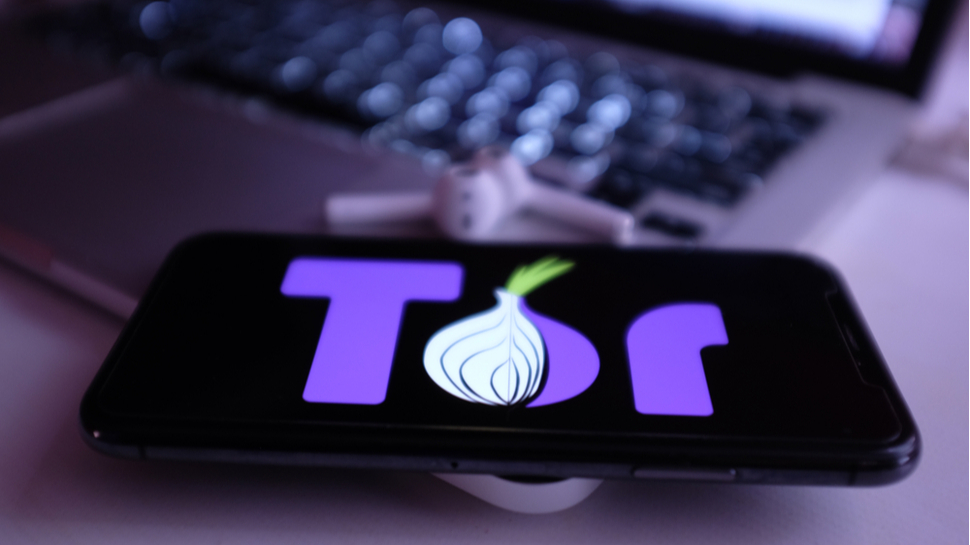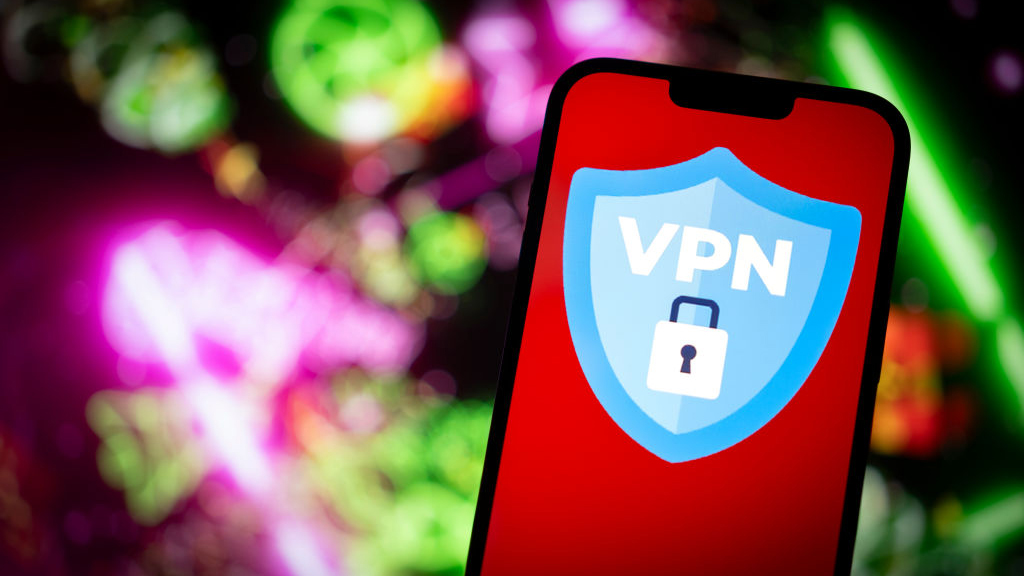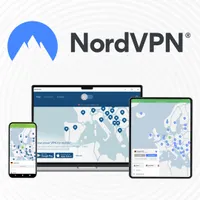What is Onion over VPN?
It's all about the layers

Sign up for breaking news, reviews, opinion, top tech deals, and more.
You are now subscribed
Your newsletter sign-up was successful
I can't begin to tell you how many times I've almost clicked the "free turbocharger giveaway" link on my phone. Every time, I stop at the last minute, take a breather, and remember that if I want new car parts, I'll have to buy them. Unfortunately, as much as I hate to admit it, online cyber threats are becoming more frequent, more personal, and harder to spot - even for those of us who write about cybersecurity for a living.
If you're anything like me and you're looking for new ways to secure your online activities, your best bet is to check today's best VPNs. However, for those wanting to take their protection to a whole new level - which I highly advise - keep reading, and I'll introduce you to Onion over VPN.
Onion over VPN is offered by several top services and can add an extra layer of protection to your day-to-day browsing sessions. However, it can also seem overly techy to new users. Here's everything you need to know about it.
NordVPN – from $3.39 per month
The best VPN overall
NordVPN is the best choice for most people, thanks to its stellar speeds and a whole host of security-boosting tools. Basically, it's the total package. Onion over VPN ins included as standard across all paid plans, meaning you can try the feature out yourself, in your own time, with a handy 30-day money-back guarantee.
What is Onion?
Onion is, essentially, a free and open-source software (sometimes called the Tor network, but I'll get to that in a bit) that lots of folks like to use because it allows for anonymous online communications. The Onion network is typically accessed via the Tor Browser, maintained by the volunteer-led Tor Project.
More precisely, the word "Tor" is short for "The Onion Router." The Tor network protects your online traffic with layers of encryption resembling layers of an onion (hence the name). It routes your traffic through a series of nodes (servers and relays) that hide your browsing activity, online data, and real IP address from ISP, the government, and snoopers.
The Tor browser (also called the onion browser) is a web browser designed to access the Tor network, i.e. access the services and website only accessible within the Tor network, and have addresses ending in ".onion."
The Tor browser and network collaborate to route your internet traffic through the 3 layers of nodes that play the role of Tor servers/routers:
- The entry node. Also called the "guard" node, this is a randomly selected entry node that first encrypts your data and introduces it to the Tor circuit when you initiate a connection on the Tor network.
- The relay nodes. Next, your data passes through a series of middle nodes (called relay nodes), each of which decrypts a layer of encryption and forwards the data along until it reaches the exit node.
- The exit node. This node removes the final encryption layer, at which point the data leaves the Tor network and travels to its final destination.
What is a VPN?
A virtual private network (VPN) protects users by encrypting their data and masking their IP addresses. This hides their browsing activity, identity, and location, allowing for greater online privacy and autonomy.
In other words, a VPN routes the traffic that leaves your device through to a secure server, where it's encrypted and rendered unreadable to potential snoops and third parties.

Want to learn more about how VPNs do their thing (and keep your browsing sessions secure)? Head on over to our jargon-free explainer: How does a VPN work?
VPNs have grown to become highly commercial and pretty much work like any other app you'd download. They're also compatible with just about every device out there – and router VPNs can extend this compatibility even further. Unlike the Tor browser, however, VPNs encrypt all of your traffic.
Here's how VPN encryption works in a nutshell: VPNs route your traffic through a secure server – not your ISP's servers – and encrypt it. Therefore, your government, your ISP, cybercriminals, and other third-party snoopers can't read your traffic, even if they happen to intercept it.
VPNs also use various protocols (commands and processes that determine how your traffic travels from server to server via an encrypted tunnel) to transfer your data. Currently, WireGuard and OpenVPN are today's speediest, most secure, and overall well-regarded options.
What is Onion over VPN?
Onion over VPN is also sometimes called Tor over VPN (not to be confused with VPN over Tor, which I'll elaborate on later). This tool/technology involves connecting to a VPN server before jumping to the Tor browser, ultimately adding an extra barrier between your internet connection and potential threats.
The inner workings of Onion over VPN, therefore, are as follows: It opens the VPN and connects to a server, encrypting your traffic before it reaches the Tor entry node. While browsing via the Tor browser, your traffic shows the VPN server's IP address (with your original/actual IP being concealed), meaning snoopers can't trace your activity back to you – even after you leave the exit node.
The single most important advantage of using Onion over VPN is that you get end-to-end VPN protection on top of Tor's already impressively boosted anonymity.
Benefits of Onion over VPN
There's a lot to be said about using Onion over VPN and being extra careful when browsing online. After all, cyber threats are continuously evolving and are becoming increasingly difficult to spot. As such, the most significant benefits of using this technology are:
- Robust encryption. Even if a Tor node fails, routing traffic through a VPN server ensures that it stays encrypted.
- Fewer obstacles. Sites that typically restrict Tor traffic won't be able to tell that you're using the Onion network if you're also using a VPN.
- Ease of use. You won't have to download or install the Tor browser to gain access to the Tor network. NordVPN, for example, allows you to simply connect to an Onion Over VPN server and use any browser of your choice.
Drawbacks of Onion over VPN
Unfortunately, there is no such thing as perfect technology. Even one as impressive as Onion over VPN has a few drawbacks, such as:
- Impacted performance. Routing traffic through a VPN, and the continuous hops involved in the Onion network, can negatively affect your overall browsing experience.
- Some technical know-how required. VPNs are designed to be as user-friendly as possible, whereas incorporating the Tor network can be overwhelming to less tech-savvy users.
- Risk of UDP data leaks. As Tor only supports the TCP protocol, this means UDP traffic (including Voice-over-IP) will have to travel outside the Tor network. This traffic may expose your IP address and online activity to third parties - known as "bad apple" attacks.

The (cyber) devil is in the details - a saying that Alex firmly believes in every time he powers up his PC. As a freelance writer, Alex explored a plethora of topics and industries during his 10+ years-long career. Cybersecurity is his current focus, allowing his innate attention to detail (and OCD) to adorn each reader- and value-oriented piece he crafts.
You must confirm your public display name before commenting
Please logout and then login again, you will then be prompted to enter your display name.
